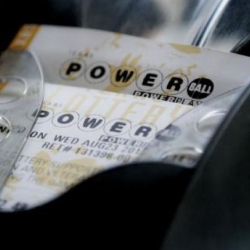
Powerball jackpots dominate the Top 10 all-time prize list, but Mega Millions increased its odds of winning in October 2017.
The multi-state lottery associations boast a combined $783 million in jackpot prizes this week, as Mega Millions has a $343 million drawing on Tuesday and Powerball has a $440 million drawing on Wednesday this week.
Over the weekend, no one won the jackpot prize for either of the multi-state lotteries, which include 44 US states in their associations. Though Spain’s El Gordo has the largest prize pool each year, Powerball and Mega Millions boast the Top 10 single prizes in the history of lotteries worldwide.
Americans love buying lottery tickets. Each year, the US public spends more than $80 billion on lottery gambling, which is more than the combined amount Americans spend on movies, music, concert tickets, sports tickets, books, and video games.
Odds of Winning Powerball and Mega Millions
Changes in the odds of winning the jackpots in recent years have increased the record totals significantly. Since 2014, either the Powerball or Mega Millions drawings have notched nine of the ten biggest jackpots in lottery history. Only a 2012 outlier among the Top 10 dates back more than 3 years.
While drawings with $350 million to $400 million pots are still fairly rare these days, the old records are likely to fall in the coming months. Both lotteries increased the odds of picking all 6 numbers recently, meaning fewer wins will happen and jackpots should increase significantly.
Changes in Powerball, Mega Millions Odds
In October 2017, Mega Millions increased the odds of picking all six numbers from 1-in-258.9 million to the new probability of 1-in-302.6 million. In October 2015, Powerball increased its odds from 1-in-175 million to 1-in-292 million. With the odds as they stand now, Mega Millions will tend to have slightly higher jackpots, which has not been the case lately. Since Powerball’s move 26 months ago, the Florida-based association has claimed most of the biggest jackpots.
On January 13, 2016, the single-largest winning lottery jackpot was announced, as three people held a winning $1.586 billion jackpot. Because that jackpot had three winners who split the $1.5 billion+ prize, it did not qualify as the biggest jackpot prize ever. That distinction lies with a Massachusetts-based lottery winner, who held a $750 million winning ticket in an August 23, 2017 drawing.
Multiple winners are more likely to happen as the jackpot prize increases, because people who do not play the lottery start to buy tickets as the pot increases. Normal lottery winners buy multiple tickets, while groups form to buy hundreds of lotto tickets at once. As the prize grows, tv stations, cable news, and newspapers cover the large prizes, giving Powerball and Mega Millions free advertising. A critical mass is reached, where the public pays attention and the number of tickets bought increases several-fold.
Mega Millions $343 Million – Powerball $440 Million
With both jackpots reaching notable levels, lottery vendors are seeing players who buy both tickets in their stop at the convenience store or gas station. Jeff Lenard, who speaks on behalf of the National Association of Convenience Stores, said players have no preferences between the two big multi-state lottery associations.
Mr. Lenard said, “It’s something we often see, particularly when there are two big jackpots — people buying both tickets. There’s not much loyalty to a specific games. They’re sold in the same places, so you might as well double down on the number of days that you can dream.”
Positive Expectation Lottery Tickets?
It might be irrational to avoid lottery tickets when the prize is $20 million or $50 million, while rushing out to buy tickets when the prize is $300 million or more. The chances of winning are astronomically high, but as Jeff Lenard noted, people like to dream of winning the truly big jackpot. Of course, mathematicians would say that a jackpot of $300 million or more suddenly makes the Powerball or Mega Millions lottery a positive expectation game, so that is the only time it “makes sense” to buy a lottery ticket.
Techically, that is not true. With the large amount of taxes taken out of a $343 million jackpot prize and the money taken out for a lump sum payment, the amount of cash one receives from a $343 million jackpot is significantly less than the 1-in-303 million odds of winning. Then consider that basic lottery tickets cost $2. The prize pool would have to increase to the $800 million or more range to make a lump sum payout ticket a positive expectation game with a $2 lottery ticket.
Big Jackpot Lottery Players
That hardly stops lottery bettors from buying a chance at a massive payout. Even this gaming news writer, who tends to report the odds and urge people to be cautious about out-of-control lottery betting, tends to buy a ticket when the prize gets to the current level.
Every time I do, I tell the cashier the same lame joke: “I can’t really use a $10 million jackpot. I only play when I can win real money.”
